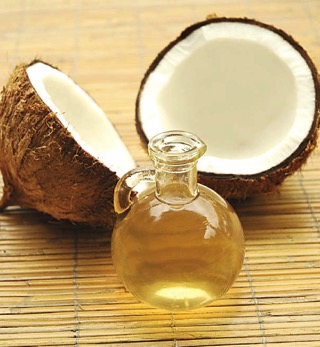
The American Heart Association (AHA) recently announced coconut oil is bad for you. This is the same advisory organization that endorses breakfast cereals loaded with sugars and artificial additives.
It’s important to look at this coconut oil advisory in context: Saturated fats have been proven repeatedly not to be bad for your health or raise the risk of heart disease when you eat a diet that is low in sugar and carbohydrates and high in omega 3 fatty acids (such as from cold water fish and raw nuts).
Sugars and carbs biggest heart disease culprits
In fact, studies also show it is sugars and excess carbohydrates that inflame the arteries, lead to arterial plaques, trigger production of the “bad” types of cholesterol, and promote obesity.
Likewise, polyunsaturated fats, which the AHA recommends in place of coconut oil and other saturated fats, are high in omega 6. Although we need a healthy ratio of omega 6 to omega 3, the average American eats far too much omega 6 already, thus promoting chronic disease.
Inflammation, not cholesterol, is a culprit
Excess omega 6, which is ample in polyunsaturated vegetable oils, is linked with chronic inflammatory disorders, such as fatty liver, arthritis, and irritable bowel disorder. Chronic systemic inflammation has also been found to increase the risk of heart disease.
Meanwhile, cholesterol has been found not to be a factor in heart disease risk. What matters are levels of inflammation (as measured by CRP or homocysteine on a blood test) and levels of the “bad,” or dense, LDL from eating too many sugars.
Big difference between saturated and trans fats
Although it’s not clear which saturated fats were investigated in the study panning coconut oil, the majority of studies linking saturated fats to heart disease include hydrogenated, or trans, fats. Trans fats are inflammatory, artery-clogging, brain damaging fats that should be avoided at all costs. It is incorrect to group them with natural saturated fats.
Health benefits of coconut oil
In a nutshell, if you manage your blood sugar levels with moderate to low consumption of complex carbohydrates, you avoid sugars and processed carbohydrates, you eat plenty of omega 3 fats, and your diet includes 7 to 10 servings a day of vegetables and low-glycemic fruit, chances are you can safely enjoy liberal amounts of coconut oil.
In fact, coconut oil has been shown to have healthy heart benefits even. The heart prefers the fatty acids found in coconut oil as a source of fuel.
Coconut oil is also known to:
- Increase metabolism
- Curb appetite
- Fuel the brain
- Lower triglycerides
- Fight bacteria, viruses, and fungal infections
The AHA diet can raise risk of heart disease
Unfortunately, the AHA promotes pro-inflammatory foods that are high in sugars, processed carbs, and omega 6 oils — the very foods most associated with chronic diseases. To their credit, however, they also promote 7 to 10 servings of produce a day and ample omega 3 fatty acids, both of which are excellent anti-inflammatory approaches that support heart health.
If you follow the AHA advice to replace calories from healthy natural fats with AHA-approved foods high in industrialized oils and processed carbohydrates, you may find both your blood test results and symptoms worsen. Ask my office for more advice.



Latest from the Blog
The Death of Red Dye #3
January 15, 2025What Is Red Dye No. 3? Red Dye No. 3, or Erythrosine, is a synthetic food color derived from coal tar. It was first approved by the FDA in the 1950s and quickly became one of the most popular artificial colors in food and cosmetics. Red Dye No. 3 was used in everything from candies, […] Read more
Latest from the Blog
Do You Know What Is In Your Protein Powder?
What’s Really in Your Protein Powder? Understanding the Risks Protein powders are a staple in many health-conscious diets, from athletes seeking muscle recovery to those simply aiming to boost their daily protein intake. With a wide variety of options available, choosing the right one can feel overwhelming. However, recent findings have raised concerns about what’s […] Read more